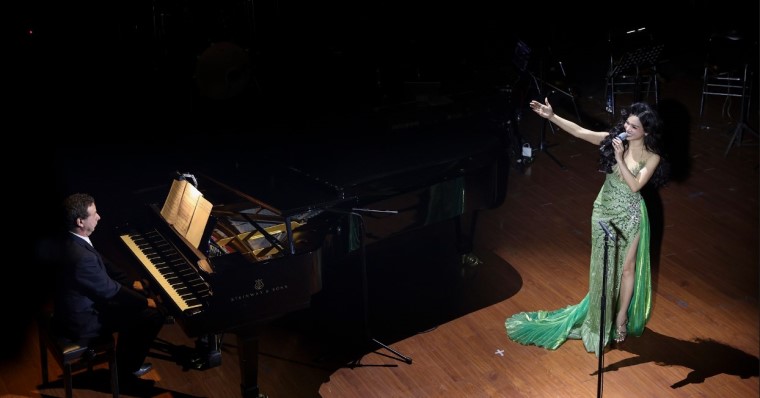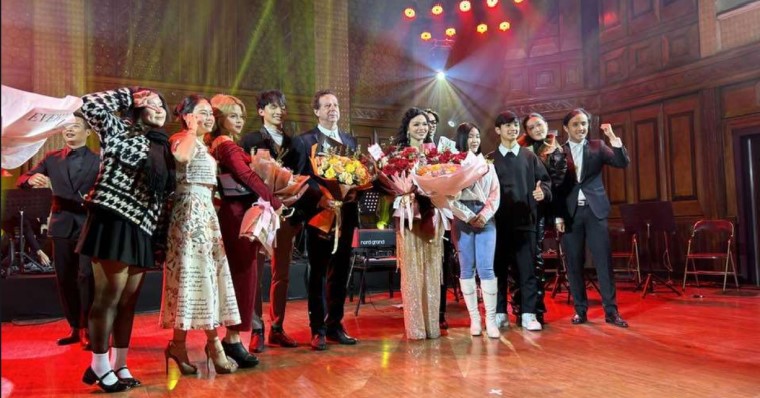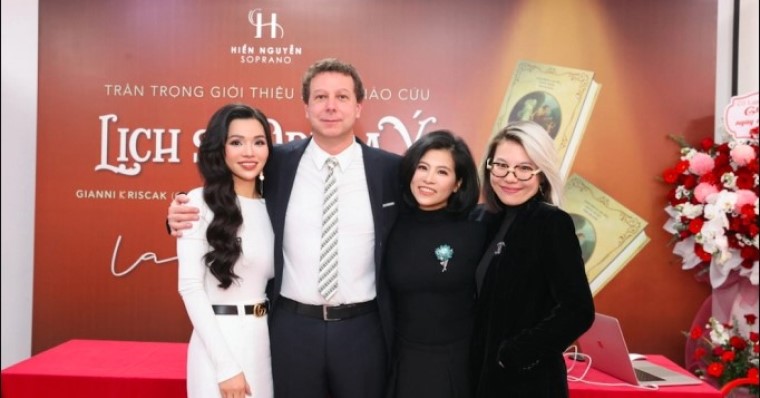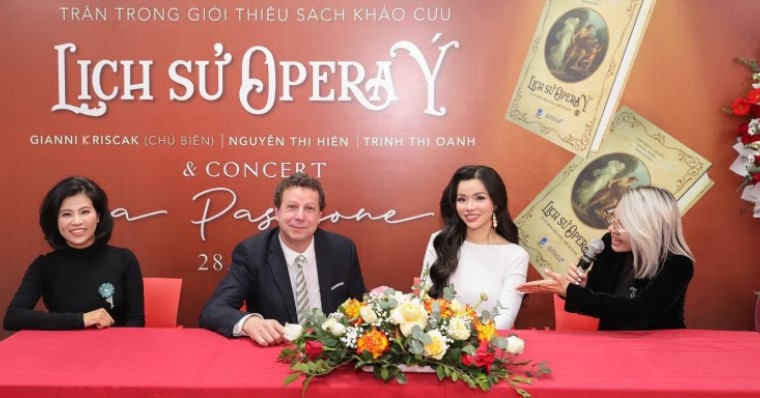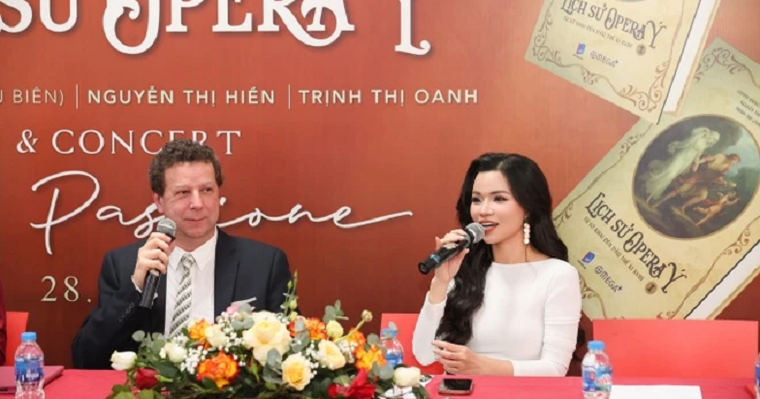Sunday, 03/03/2024
The female singer pursuing classical music reveals a hidden corner of her career
Hien Nguyen confided that she did not come from a "family background" but pursued her passion for classical music.
Hien Nguyen confided that she did not come from a "family background" but pursued her passion for classical music.
Hien Nguyen Soprano has been pursuing her passion for classical music for many years (Soprano is a female voice with the highest pitch of all opera voices - PV). She graduated with a Master's degree in performance from the Vietnam National Academy of Music (formerly Hanoi Conservatory of Music). In 2012, she received a scholarship from the Italian government to study for 2 years at the Milan Conservatory of Music.
After graduating, instead of accepting an invitation to stay and work at the Theater Olimpico in Rome, she chose to return to her country to become a solo singer. She is a rare female singer who can fluently speak 3 foreign languages, including Italian, English and French, and can also speak a little German and Spanish.

Rejecting a job offer in Italy, Hien Nguyen Soprano returned to Vietnam
She has had many solo concerts such as Belle duette 2015, Moc Mien 2018, Yeu 2021 and the album Love and Dreams 2021. After a period of time returning to her country to teach vocal music and perform professionally, she recently organized held the La passione concert on March 1, 2024 with two international pianist guests - Professor Gianni Kriscak and singer Quoc Dat. On this occasion, Hien Nguyen shared with us about the process of pursuing her passion for classical music.
"My parents had to sell a whole herd of pigs to have money for me to go to the Conservatory of Music"
- As someone with many years of experience in the profession, have you noticed that up to now, classical music is still very picky about audiences in Vietnam?
- Classical music attracts audiences in all countries around the world, not just Vietnam. Even in Italy, opera is now very difficult to live on. Many artists studying classical music have switched to semi-classical singing. I say this not to change the direction of music students, but that is the reality. But once you fall in love, there are still communities where people still love and still learn about it. In Italy, they had periods of brilliant opera development in the 18th and 19th centuries. Vietnam has never had a brilliant opera season. I believe that the fire continues, and at some point, opera will reach its climax.
- It is very difficult to survive in today's very competitive music market. Many of you would think that if they didn't start from a wealthy family and have many connections, would an opera artist be able to make a living with the profession?!
- It's the same with any profession. Many of you also majored in other majors, not music, but then had to change careers. Many of you later discover your passion. For me, my passion for classical music has been very long, not one day or two, but has lasted for more than ten years now.
My parents don't work in music at all. The family did not have a musical tradition. My family used to be very poor. My parents even had to sell their pigs to have money for me to study at the Conservatory. At that time, my house was on the outskirts of the city. The starting point is not rich at all.
Now that life is full, I always feel grateful for life and music. Because thanks to music, my life helps me soar, enjoy life, and be more enthusiastic about everything around me. Music inspires me in many other jobs. Like now, in addition to singing, I also teach, do scientific research, and now write books. So I think when you are truly passionate and want to stick with it, you will receive a worthy answer.
- When did you start cultivating your passion for Opera music?
- When I first entered the Conservatory of Music, I still had no direction for myself. In my second year, I studied with Ms. Bich Thuy, who had just returned home from graduate school in Korea. She has won many international awards and is a role model for pursuing opera music. With the mentality that I am in the first class of students, she has a lot of fire, there are many teachers who give it all, igniting the fire of passion to my student. From then on, I determined to pursue classical music. In 2012, I received a full scholarship to Italy. I just realized that this is the path I will follow for the rest of my life until I take my last breath.
Currently I am teaching at Hanoi College of Arts. I have been teaching since graduating until now. Besides, I do scientific research projects, such as working with Professor Gianni Kriscak and Ms. Trinh Thi Oanh to launch the research book "History of Italian Opera" (part 1) from its infancy to early 18th century. That is also a way for me to add fire to the students.
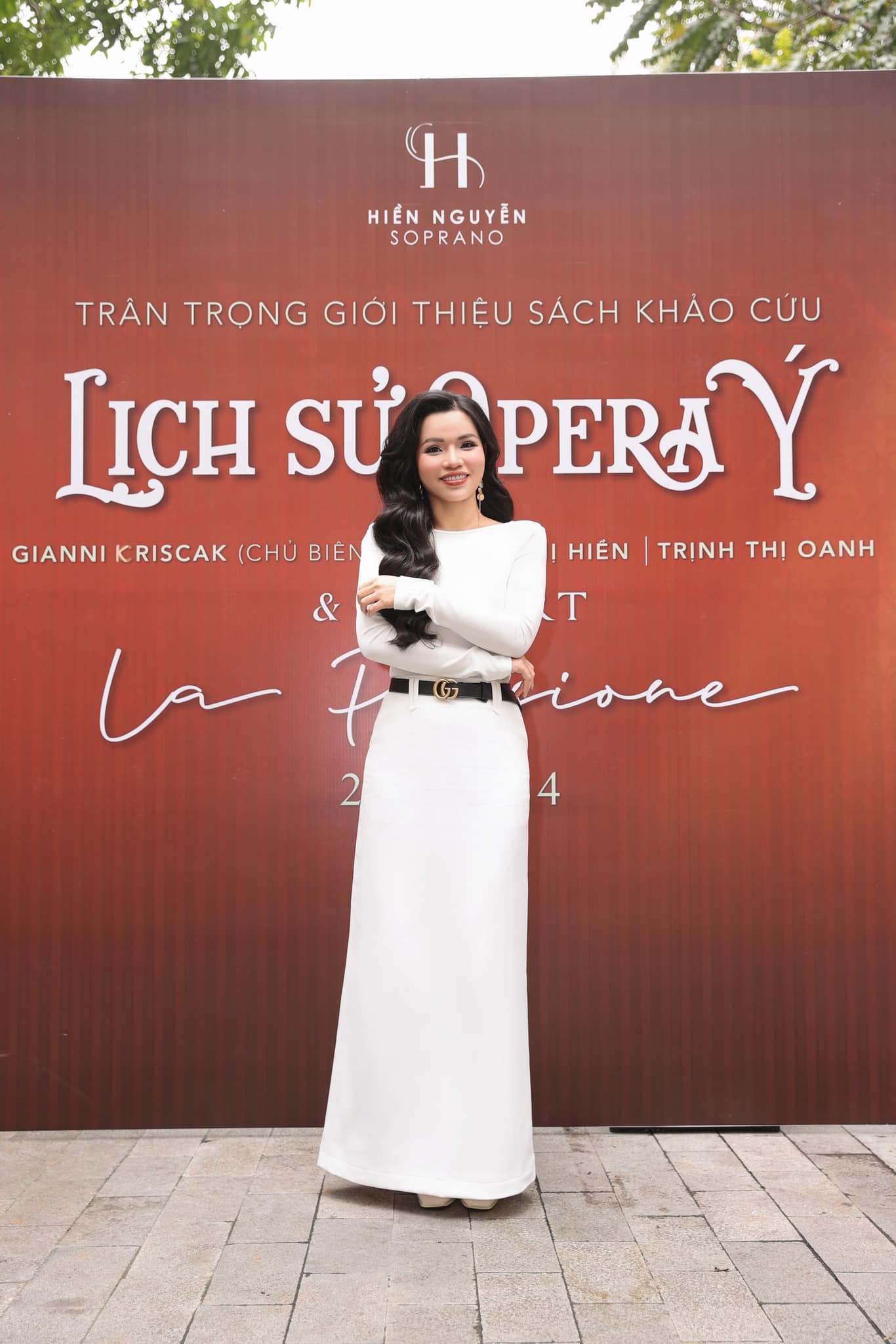
Hien Nguyen at the presentation of the research book "History of Italian Opera" and the concert "La passione"
- Some time ago, she also turned to semi-classical singing. Is it because you want to reach more audiences?
- Yes. The direction I set is because I want the audience to know me better. Second, I want to change the opinion of many people that classical students cannot sing many genres. I study classical to hone and improve my technique. When applied to other genres, just change a little to focus and you can sing.
- What is the most difficult thing for an opera artist when populating opera or singing classical music in a jazz style?
- It's about softness and flexibility because jazz is about variation and improvisation, while opera means you have to follow the music.
- During the process of studying classical music, what was the most difficult thing for you?
- In my opinion, it is learning the language. When studying Italian opera, you must learn Italian. I myself study two schools at the same time, including a foreign language school, but I still find it difficult. That is a barrier for many people.
"There's a lot of crying, without tears you can't succeed"
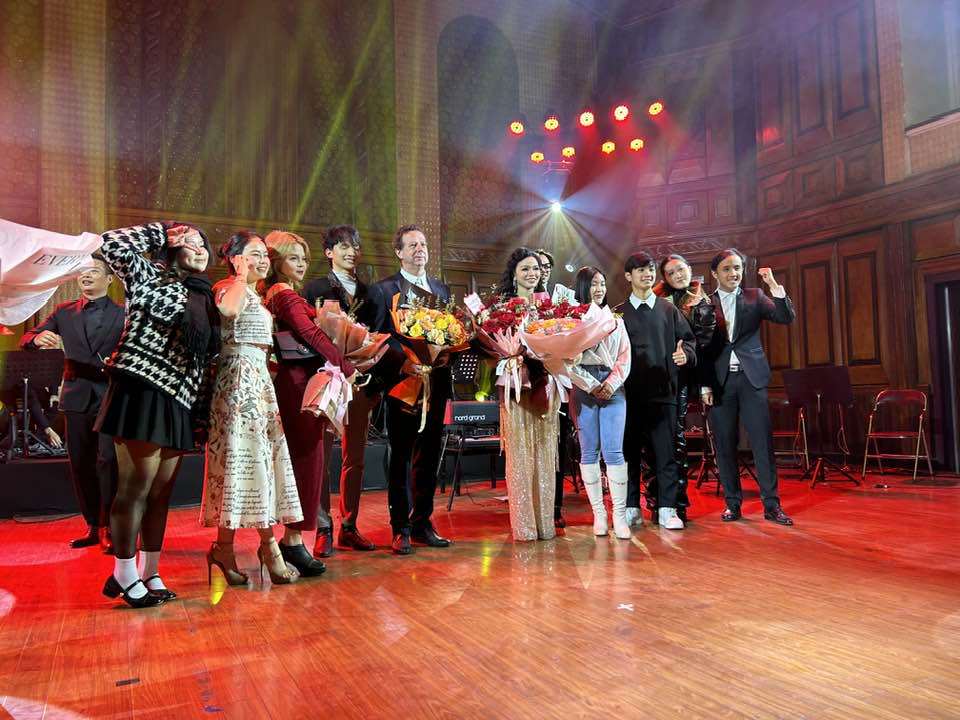
Hien Nguyen during her performance on the evening of March 1 at the Vietnam National Academy of Music
- Why did you refuse to work in Italy?
- At that time, for family reasons, I returned to Vietnam. That's why I missed 2 years of graduate school in Italy. But I think the learning curve is very long. Currently, I continue to study as a PhD student. There are times when I regret it but I think it's a choice. I still have ways to continue to fulfill my passion. When I returned home, I still worked in the field I chose.
- Working and working in the classical music industry, do you see dramas similar to those in "showbiz"?
- Actually, everywhere there is, office or workplace environment, one music or another. I think I should just focus on work and not pay attention to the surroundings. I always remember to do your work, don't spend time on unnecessary things.
- Many young people who like art today will think that following classical music is difficult to earn a good income, from salary to number of shows. Do you think so?
- More or less depends on each person's thoughts. For me, if I work, teach, or sing, life is quite good if I work hard. With this job, it's a passion so I don't feel tired. If you keep thinking that you have to earn more, it will be difficult. Personally, I feel like my life is very good right now, I can live with my job.
- On the path to pursuing that passion, what was the most difficult stage for you?
- The most difficult thing is finding a way out to shape it and finding it is the most difficult thing. Determination, then also wavered. At that time, I was in my 2nd and 3rd year studying at the Conservatory of Music. Students majoring in other majors sang in tea rooms and shops. I didn't go, because I was busy studying at two schools at the same time, the Conservatory of Music and the University of Foreign Languages. After that, I went to Italy and was busy. Studying 8 hours a day, luckily I had 2 months to study the language in Vietnam before going there. Sometimes studying too much can cause stress and depression. When I return to Vietnam, I'm busy with children, busy teaching, busy doing concerts... always busy with work.

The female singer admitted that there were difficulties on her path to pursuing classical music but did not give up her passion
- Once when collaborating with Ms. My Linh, she said that her "senior" criticized her: "Miss Hien's singing here is too weak, she needs to sing more strongly." How do criticism affect you?
- It's okay, in life you have to listen to criticism. Even in Ms. My Linh's words, it was not her criticism but her comments. When the feedback is correct, we should listen. Each genre of music will have different strengths and weaknesses. The important thing is knowing how to promote your strengths.
- Have those criticisms or comments ever made you cry?
- Crying a lot. Because of this profession, without crying moments you cannot develop. Without tears there can be no success. Only by having criticism and suggestions can we improve. It's the compliments that sometimes kill me like: "Oh, you sing the best in Vietnam." If I live on compliments like that, I'll just stand still.
- Thank you for sharing!
Other news
-
03/03/2024
-
03/03/2024
-
03/03/2024
-
03/03/2024
-
03/03/2024
-
03/03/2024
-
03/03/2024
-
03/03/2024
-
03/03/2024
-
03/03/2024
-
03/03/2024
-
03/03/2024
-
03/03/2024
-
03/03/2024

